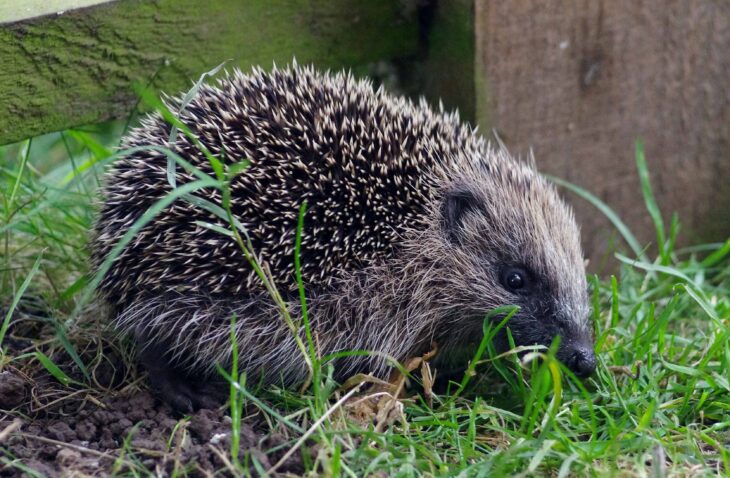Hello again, hedgehogs!
,

March is here and that means many things for nature but, this week, we are all about the hedgehogs, who should soon be emerging from hibernation.
These prickly nocturnal characters are one of the few species of mammal to enter hibernation in the UK – alongside the dormouse and our native bats. Hedgehogs go into hibernation around October or November each year, as their food sources become scarce in the cold temperatures. The average hog loses around 25% of its body weight through hibernation.
Hedgehogs are insectivores so feed on slugs, worms, beetles, caterpillars, earwigs and millipedes. They have also been known to eat baby birds, frogs and small mammals, if the opportunity arises! And, if a hedgehog visits your garden, you will soon be able to throw away your slug pellets.
These days, it’s not uncommon to see them out and about if mild weather tricks them into a false sense of spring, but this can leave them vulnerable. In March, the male hogs are first to emerge from hibernation, to build up their strength for the mating season ahead.
Hedgehogs are now a threatened species in the UK for many reasons: loss of habitat, increased traffic on our roads, and declining populations of insects for them to feed upon. However, there are some simple ways we can help the hogs in our neighbourhoods.
First, if you have a garden, leave it to grow a little wild. Hedgehogs love piles of leaves to snuffle under for insects and compost heaps to shelter in, so be mindful when raking up in the garden. You might also put out some fresh water for them and some dried hedgehog food or cat food (never milk and bread as they’re lactose-intolerant) to help them build up their body weight.
You can buy or make a hedgehog hotel, to give them somewhere to shelter in all weathers. They also like to scurry between gardens so make sure you have a gap in your fence or a ‘hedgehog highway’ where they can roam freely along your street.
For such tiny creatures, they can speedily cover up to 2km per night and they can also be very noisy. They’re not nicknamed ‘hedge-pigs’ for nothing. So, remember to post your pictures and videos if you happen to see – or hear the unmistakable grunts – of any Cumbernauld hogs on our Facebook page, @CumbernauldLivingLandscape. We’d love to see them.
